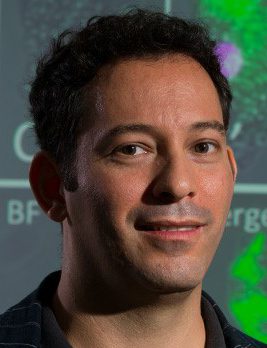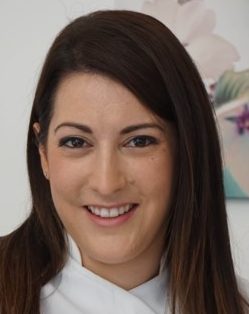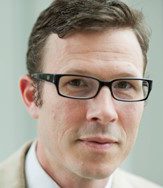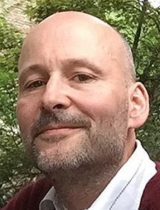The Toronto Symposium on Fibroblast Progenitors in Health and Disease
Friday May 25 – Saturday May 26, 2018
at the University of Toronto, 150 College St, Fitzgerald Building, Toronto, Ontario, Canada
joins with the Canadian Connective Tissue Conference, May 23-25, 2018
registrations under: https://connective-tissue-canada.com/cctc-2018/registration/
Everything you always wanted to know about myofibroblasts (but were afraid to ask). 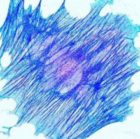
In response to injury, our body launches complex repair programs. To rapidly restore the mechanical integrity of damaged tissue, various precursor cells are activated into so-called myofibroblasts, which secrete and contract extracellular matrix into stiff scar tissue. Although scar tissue increases tissue strength, it cannot replace lost tissue function. If the critical repair function of myofibroblasts is perverted in fibrosis, excessive accumulation of fibrous tissue can lead to fatal failure of major organs such as lung, heart, liver, and kidney. Fibrosis is a terminal condition of many organ diseases and estimated to cause ~45% of all deaths world-wide. Myofibroblasts are key anti-fibrosis targets, but therapies are not yet translated to the clinic because what tips the balance between physiologic and pathologic repair remains elusive.
This symposium assembles a panel of world-leading experts, studying the mechanisms of fibrosis and tissue repair with the aim to develop new treatments for patients with fibrotic diseases. There is general agreement that myofibroblasts are activated in tissue repair and fibrosis but not where the come from and where they go (or not) after the job is done. Identifying myofibroblast precursors will help to identify specific molecular targets for therapies and/or early diagnostic tools. All speakers devote part of their research to answer the intriguing question of fibroblast/myofibroblast progeny, which is the theme of this symposium. Be prepared for friendly but possibly heated discussions among the panelists.
The symposium will start just after the Canadian Connective Tissue Conference with an introduction by the host. Highlight of Friday night is the keynote lecture given by Dr. Giulio Gabbiani – discoverer of the myofibroblast.
The Toronto Symposium on
Fibroblast Progenitors in Health and Disease
Friday May 25 and Saturday May 26, 2018
at the University of Toronto, Toronto, Ontario, Canada
joins the Canadian Connective Tissue Conference, May 23-25, 2018
register for both events or separately: https://connective-tissue-canada.com/cctc-2018/registration/
Wednesday, May 23, 2018 – Friday May 25, 2018 (CCTC)
| Friday, May 25 | 16:00 – 18:30 h |
|---|---|
| Session 1 | The Myofibroblast |
| 16:00 – 16:45 h | Opening and Introduction to the Fibroblast Progeny Symposium Boris Hinz (University of Toronto) |
| 16:45 – 17:45 h | Honorary Keynote Lecture: The Myofibroblast: An Historical Approach Giulio Gabbiani (University of Geneva) |
| 17:45 – 18:00 h | Session Discussion |
| 18:00 – 18:30 h | Walk to Reception Venue |
| 19:00 h | Reception at the Royal Ontario Museum (ROM) – A Night at the Museum |
| Saturday, May 26 | 8:30 – 17:00 h |
| Session 2 | Fibroblast Progenitors in Skin Dermis, Wound Healing and Fibrosis |
| 8:30 – 8:40 h | Introduction Session 2 |
| 8:40 – 9:30 h | Cell Lineage Perspectives of Scar Tissue Development and Diversity Yuval Rinkevich (Helmholtz Zentrum, Munich, Germany) |
| 9:30 – 10:20 h | Heterogeneity of fibroblasts in healthy human skin Christina Philippeos (King’s College London, UK) |
| 10:20 – 10:30 h | Session Discussion |
| 10:30 – 11:00 h | Coffee Break |
| Session 3 | Fibroblast Progeny in Normal and Diseased Liver, Lung, and Kidney |
| 11:00 – 11:10 h | Introduction Session 3 |
| 11:10 –12:00 h | Using Single Cell RNA Sequencing to Investigate Mechanisms of Liver Fibrosis and Repair Neil Henderson (University of Edinburgh, UK) |
| 12:00 – 12:50 h | Insights Into Fibroblast Precursors in Lung and Kidney Jeremy Duffield (Vertex Pharmaceuticals, Boston, MA) |
| 12:50 – 13:00 h | Session Discussion |
| 13:00 – 14:30 h | Lunch Break (with Conference Photograph) |
| Session 4 | Fibroblast precursors in Normal and Diseased Muscle and the Cancer Stroma |
| 14:30 – 14:40 h | Introduction Session 4 |
| 14:40 – 15:30 h | Hepatic Stellate Cells – a Key Cell Population in Liver Fibrosis and Liver Cancer. Robert Schwabe (Columbia University, New York, NY) |
| 15:30 – 16:20 h | Pathogenic Roles of Cardiac Fibrogenic Progenitors Fabio Rossi (University of British Columbia) |
| 16:20 – 16:30 h | Session Discussion |
| 16:30 – 17:00 h |
Wrap-Up: Open Discussion and Closing of the Symposium |
Honorary Keynote Lecture (Friday May 25, 2018, 16:45 h)
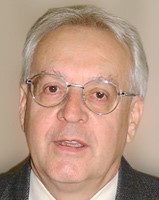 Dr. Giulio Gabbiani (University of Geneva, Switzerland)
Dr. Giulio Gabbiani (University of Geneva, Switzerland)
Giulio has obtained an MD degree in 1961 at the University of Pavia (Italy) and a PhD degree in 1965 at the University of Montreal (Canada). He has been Assistant Professor at the Institute of Experimental Medicine and Surgery, University of Montreal, Research Associate at the Department of Pathology of Harvard Medical School, Assistant Professor at the Department of Pathology and Immunology of the University of Geneva (Switzerland) and then Professor in the same Department, where he is now Emeritus Professor. The scientific interests of Dr. Gabbiani include soft tissue remodeling during development and pathological situations, such as wound healing and organ fibrosis as well as arterial smooth muscle adaptation during development and diseases, e.g. atheroma formation and restenosis. Giulio was first to describe the myofibroblast in 1971 – a cell that has since been shown by several laboratories to be responsible of connective tissue remodeling in developmental and pathological settings. And he knows everything you always wanted to know about myofibroblasts (but were afraid to ask).
After the lecture, Friday evening will continue a welcome reception for registered attendees with the speakers at the Royal Ontario Museum. Admission tickets are included in the registration but limited – first-register-first serve.).
Main Symposium (Saturday May 26, 2018, 8.30 –17:00 h) (Speakers in order of their talks)
Dr. Yuval Rinkevich (Helmholtz Zentrum, Munich, Germany)
Yuval obtained a PhD degree in Biology from Technion of Israel Institute of Technology, Haifa in 2008. From 2008 until 2014, he was postdoctoral fellow of Prof. Irving L. Weissman, Stanford Institute for Stem Cell Biology and Regenerative Medicine at Stanford University, USA. In 2014 he became Basic Life Science Research Associate at Stanford University. Since 2015, Yuval is Young Principle Investigator at the Institute for Lung Biology and Disease, Comprehensive Pneumology Center, Helmholtz Zentrum, Munich, Germany. Yuval’s scientific focus lies in identifying principles of tissue/organ regeneration, and developing a knowledge basis for therapeutic strategies in clinical use. His lab is exploring the stem cells, embryonic lineages and mechanisms by which tissues/organs regenerate following injury – in particular the skin.
Dr. Christina Phillipeos (King’s College London, UK)
Christina obtained her PhD in cell biology from King’s College London in 2014. She is currently a research associate in Fiona Watt’s laboratory at the Centre for Stem Cells & Regenerative Medicine. Fiona Watt has very recently accepted the position as Executive Chair of the Medical Research Council. The major research interest of Christina and the Watt lab is in the role of stem cells in adult tissue maintenance. For many of their studies they use mammalian epidermis and dermis of the skin as a model system, both in the context of genetically modified mice and epidermal/dermal reconstitution in culture. Christina’s research focuses on human dermal fibroblast heterogeneity, specifically in the context of therapeutic applications for wound repair, tissue reconstitution and diseases characterized by excessive fibrosis.
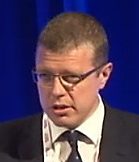 Dr. Neil Henderson (University of Edinburgh, UK)
Dr. Neil Henderson (University of Edinburgh, UK)
Neil undertook medical training in Edinburgh and London before completing a Wellcome Trust funded PhD at the MRC Centre for Inflammation Research, Edinburgh. He then trained in hepatology and was awarded a Wellcome Trust Intermediate Fellowship, during which time he spent a 3-year post-doctoral period based in Dean Sheppard’s lab at the University of California, San Francisco, USA. Neil was then awarded a Wellcome Trust Senior Research Fellowship in Clinical Science to investigate the cellular and molecular mechanisms that drive organ fibrosis at the Edinburgh Medical School. He is interested in the molecular pathways which are responsible for efficient wound healing and healthy tissue regeneration following injury. Naturally, the liver is his primary interest.
Dr. Jeremy Duffield(Vertex Pharmaceuticals, Boston, MA)
Jeremy is a Physician Scientist and Nephrologist. He graduated from Oxford and Edinburgh Universities, UK, and practiced Nephrology in Edinburgh. From 2003, he was Assistant Professor at Harvard Medical School, then as Associate Professor of Medicine & Pathology at the University of Washington in Seattle since 2010. He joined Biogen in Cambridge Massachusetts as Vice President and Senior Research Fellow in Discovery Research in 2013. Jeremy is Global Head of Human Biology with Vertex Pharmaceuticals since 2016. His work focuses on the role of innate immune response cells in injury and repair and on the role of pericytes and fibroblasts in microvascular remodeling and fibrosis. His favorite organ is the kidney.
Dr. Robert Schwabe(Columbia University, New York, NY) (
Robert received his MD training at Ruprecht-Karls-University Heidelberg and Ludwig-Maximilians-University Munich in Germany and a doctoral degree in medicine/ immunology from Ludwig-Maximilans-University in Munich. After internal medicine residency at Ruprecht-Karls-University Heidelberg, and a postdoctoral fellowship at the University of North Carolina Chapel Hill, he joined the Division of Digestive and Liver Diseases at Columbia University as an Assistant Professor in 2003. The aim of the Schwabe lab is to understand the regulation of wound healing responses to chronic liver injury with a specific focus on how the activation of hepatic stellate cells promotes liver fibrosis and liver carcinogenesis. They postulate that many pathways that promote beneficial wound healing responses in the short term, in the long term not only promote the development of fibrosis but also cancer.
Dr. Fabio Rossi (University of British Columbia, Vancouver, Canada)
Fabio obtained his M.D. and undergraduate degree from his hometown university in Genoa, Italy. He joined the Ph.D. program at the European Molecular Biology Laboratories in Heidelberg under the supervision of Thomas Graf. He continued his training at Stanford University, in Helen Blau’s laboratory. He moved to the University of British Columbia to open his laboratory in 2001. The Rossi lab uses acute and chronic damage in adult mice to elicit regeneration in muscle. Using this model, they have identified important roles for mesenchymal progenitors and monocyte/macrophages in ensuring proper regeneration. Their goal is to elucidate the molecular mechanisms underlying such roles, using skeletal and cardiac muscle as main model organs.
The Host
 Dr. Boris Hinz (University of Toronto, Canada)
Dr. Boris Hinz (University of Toronto, Canada)
Boris obtained his PhD degree from the University of Bonn, Germany in 1998. He was postdoc with Dr. Giulio Gabbiani at the University of Geneva, Switzerland. He then lead a research group at the Ecole Polytechnique Fédérale de Lausanne (EPFL), Switzerland, joining Cell Biology, Biophysics, and Bioengineering and was nominated Maître d’enseignement et de recherche in 2006. He moved to Toronto in 2009 and is now University of Toronto Distinguished Professor in Tissue Repair and Regeneration at the Faculty of Dentistry, cross-appointed with the Faculty of Medicine and the Institute of Biomaterials and Biomedical Engineering. Boris’ lab aims in understanding the role of contractile myofibroblasts in physiological tissue repair and in causing pathological tissue fibrosis, irrespective of their origins and across multiple organ systems.


